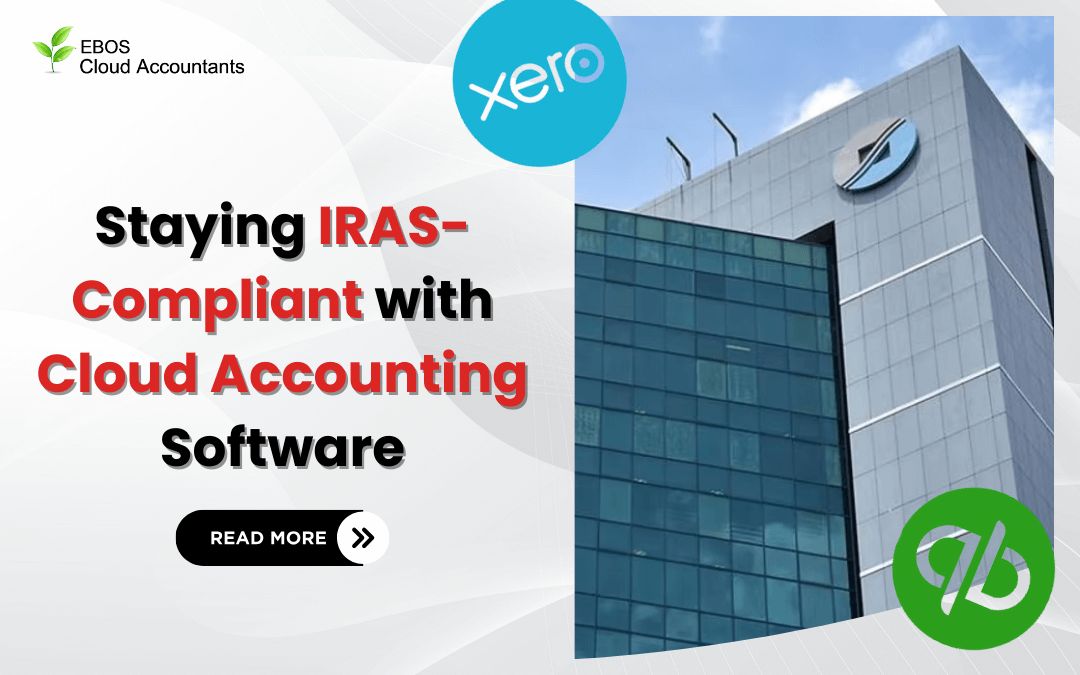As Singapore continues its push toward digitalisation, the Inland Revenue Authority of Singapore (IRAS) has been encouraging businesses to adopt smarter, more efficient systems for managing their accounts. Cloud accounting software isn’t just a trendy upgrade—it’s becoming a necessity for staying compliant in a fast-evolving regulatory landscape.
In this article, we’ll break down how cloud accounting software helps businesses in Singapore stay IRAS-compliant, reduce errors, and streamline tax-related tasks.
1. Real-Time, Accurate Record Keeping
IRAS requires businesses to maintain accurate and complete records of all financial transactions. Cloud accounting software like Xero, QuickBooks, or Zoho Books enables you to:
-
Automatically sync bank feeds and transactions
-
Attach receipts and invoices directly to transactions
-
Keep real-time records accessible from anywhere
This reduces the risk of manual data entry errors and ensures your books are always audit-ready.
2. Easy GST Compliance
For GST-registered businesses, filing accurate returns is crucial. Cloud platforms offer built-in GST features such as:
-
Automatic GST calculation on invoices and purchases
-
Real-time GST reports that match IRAS requirements
-
Direct submission of GST F5 returns to IRAS via API (for supported platforms)
Some software is IRAS-approved under the Accounting Software Register (ASR), which ensures compatibility with local tax compliance standards.
3. Simplified Audit Trail
IRAS recommends keeping a proper audit trail of changes to financial records. Cloud software automatically logs:
-
Who made a change
-
What was changed
-
When it was changed
This transparency is especially useful during audits and can help businesses avoid penalties due to incomplete documentation.
4. E-Invoicing and PEPPOL Compliance
Singapore is embracing e-invoicing via the Peppol network, and IRAS encourages businesses to adopt this standard for greater efficiency and traceability. Many cloud accounting platforms are Peppol-ready, allowing you to:
-
Send/receive e-invoices that meet IMDA and IRAS standards
-
Improve payment cycles
-
Ensure compliance with digital transaction reporting requirements
5. Automated Reminders for Tax Deadlines
Missing a tax deadline can result in hefty fines. Cloud accounting systems often include:
-
Customisable reminders for GST filing, estimated chargeable income (ECI), and corporate tax deadlines
-
Calendar syncing so you can plan ahead
-
Collaborator access, so your accountant or tax agent is always in the loop
6. Secure, IRAS-Compliant Storage
IRAS mandates that records be retained for 5 years. Cloud systems store data securely, with:
-
Automated backups
-
Encrypted storage
-
Easy export for offline archiving
This not only satisfies legal requirements but also protects your financial data from loss or theft.
Final Thoughts
Cloud accounting software is more than a convenience—it’s a strategic tool for staying IRAS-compliant. From real-time reporting to automated GST filing, these platforms reduce your administrative burden and help ensure you meet Singapore’s stringent regulatory standards. If you’re still relying on Excel spreadsheets or outdated desktop software, it might be time to make the switch.
Check out our website at https://ebos-sg.com/ to explore more articles and discover how our Cloud Accountant Services can support you on your business.







